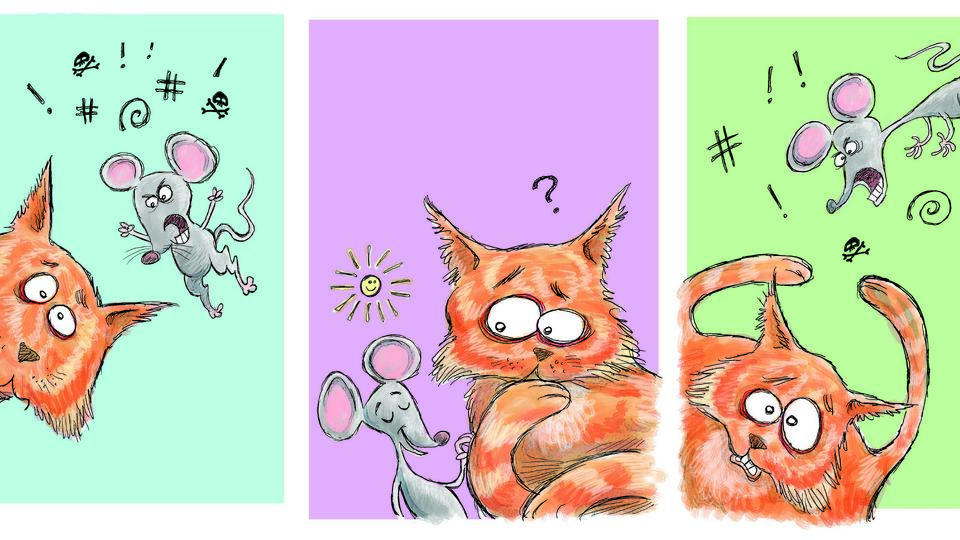
Anger Management
Is It Worthwhile To Blow A Gasket?
Based on research by Hajo Adam (former Rice Business professor) and Jeanne M. Brett
Is It Worthwhile To Blow A Gasket?
- Getting mad to get your way only works in limited contexts.
- In balanced situations, such as sales negotiations, acting out angrily can lead to big concessions.
- In more competitive or cooperative situations, however, showing anger can destroy the negotiation altogether.
You desperately want to make a deal. Will it help you to bellow like an angry elephant? Scientists used to think the answer was yes. Displaying anger, they believed, could gain concessions in making a deal. Recent research into negotiations, however, shows that angry outbursts are more likely to shut the deal-making process down — and even prompt retribution.
In a paper, former Rice Business professor Hajo Adam partnered with Jeanne M. Brett from the Kellogg School of Management to show that anger can provide a tactical advantage, but only in specific contexts.
According to past research, in negotiations — when a participant aims for any advantage over the opponent — displaying anger sometimes led to better outcomes. Adam’s new experiments demonstrate that, more often than not, the opposite is true. When a negotiation is highly charged and fiercely competitive, angry outbursts are more likely to spark so much hostility that the infuriated counterpart may actually seek revenge. In these cases, sharp words, rising voices and insults actually reduce the chances of getting to yes.
Adam’s findings align with research on the psychological idea of “competitive arousal.” In highly competitive situations, according to this concept, strategic considerations fade in the heat of strong negative emotional reactions, igniting the need to win at all costs. A study of mediated disputes on eBay, for instance, revealed that negotiators who got angry merely elicited anger from other bidders, reducing the odds of a settlement.
Anger also proved ineffective in cooperative negotiations, when participants negotiate amicably and try to build value together. Take, for example, a disagreement between partners starting a business. In a two-person, virtual teamwork environment, researchers found, subjects who blew their stacks increased interpersonal aggression and drove team performance downward. Subjects who maintained a steely composure were more likely to get a successful outcome.
To test when angry outbursts did and didn’t work, Adam and Brett looked at a mix of negotiating scenarios via computer-mediated experiments.
In one experiment, subjects had $12,000 to hire an IT company to update a website to the latest technical standards. But the best service provider’s bid was $15,000. Participants had to negotiate for a lower price with a counterpart who was either angry or emotionally neutral.
A third of the participants were told that the negotiation should be approached in a competitive spirit; another third were told that it should be approached in a cooperative spirit and the last third were not given any advice. The results offered initial evidence that expressing anger was less effective at scoring concessions in competitive and cooperative negotiations, compared to negotiations where the two factors were balanced.
In a second experiment, Adam and Brett asked 198 participants to negotiate a situation between a chef and an entrepreneur. Again, the negotiation was framed as either competitive, cooperative or balanced. In the competitive situation, the chef and entrepreneur were trying to settle a dispute; in the cooperative condition, they were trying to start a catering business together; in the balanced condition, the chef was attempting to sell the catering business to the entrepreneur.
Once again, getting angry elicited larger concessions in a balanced negotiation context, but backfired in cooperative and competitive contexts. Taken together, these studies suggest that fiery negotiation styles only work in limited circumstances.
But the flames of anger aren’t easy to modulate in the heat of the moment. Instead of assuming that angry outbursts are a viable tactic and then trying to identify the moments when they won’t work, Adam suggested, it probably makes more sense to assume anger isn’t a particularly effective negotiation tactic — and then identify the rare situations when it may work.
In part, this is because it can be so hard to judge how a negotiating partner views the interaction. A conversation that one negotiator may see as clearly cooperative, competitive, or balanced may be characterized entirely differently by the person on the other side of the table. As in the Indian parable of the blind men touching an elephant, everyone comes with their own emotional history, temperament and background, which all but guarantees they will each perceive a different animal. The only certainty, Adam said, is that it’s likely a mistake to poke it with a pointy stick.
Hajo Adam is a former assistant professor of management at Jones Graduate School of Business at Rice University.
To learn more, see Adam, Hajo and Brett, Jeanne M. (2016). Context matters: The social effects of anger in cooperative, balanced, and competitive negotiation situations. Journal of Experimental Social Psychology 61, 44-58.
Never Miss A Story


